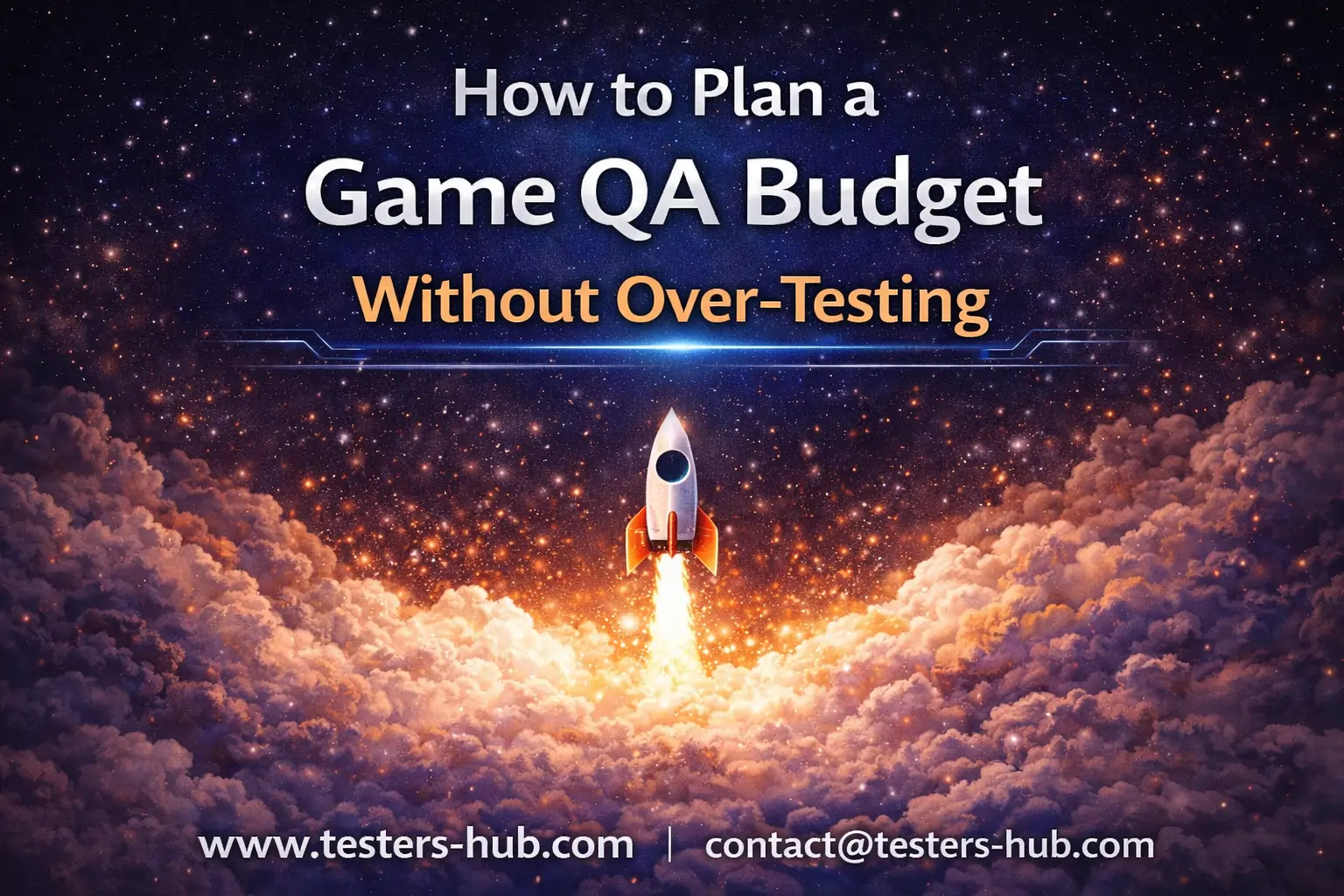Case Study: How We Helped a Mobile Game Launch Smoothly with Zero-Crash Rating
🎯 Project Overview
Client: Independent Mobile Game Studio
Game: Mystic Quest (Adventure Puzzle Game)
Target Platforms: Android and iOS
Goal: Launch the game globally with minimal bugs, smooth performance, and high player retention.
Mystic Quest combined colorful worlds, complex puzzles, and real-time player decision trees. The studio wanted to ensure that the user experience was flawless — especially because early reviews would directly impact App Store and Play Store visibility.

That’s where Testers HUB came in.
🚧 The Challenges
Testing an adventure puzzle game isn’t like testing a simple casual app. We faced several unique challenges:
- Non-linear gameplay: Players could solve puzzles in different sequences, leading to multiple possible progressions.
- Memory management: Some levels were graphics-heavy, raising concerns about crashes on older devices.
- Save/load reliability: Players could pause mid-puzzle; if saving failed, progress would be lost.
Cross-device performance: The studio needed the game to work from mid-range Android phones to the latest iPhones.
🛠️ Our QA Approach
At Testers HUB, we created a multi-layered mobile game testing strategy:
1. Device Matrix Testing
We selected a real-device matrix:
- Android (low, mid, and flagship models)
- iOS (iPhone 11 to iPhone 15)
- Tablets (iPad Air, Samsung Galaxy Tab)
2. Functional Testing
We validated:
- Puzzle logic and progression
- Save/load system
- In-app purchases for bonus levels
- Leaderboard functionality
3. Exploratory Gameplay Testing
Instead of just following a script, we played like real users:
- Skipping puzzles
- Abandoning levels halfway
- Making wrong choices repeatedly
- Trying network interruptions mid-save
This approach helped us find real-world bugs that automated scripts would have missed.
4. Performance Testing
We monitored:
- Frame rate (minimum 30fps across devices)
- Battery usage
- Heat generation during long sessions
- Load times between levels
Tools used: Android Profiler, Xcode Instruments
5. Crash and Stability Testing
- Stress testing by running long gameplay sessions (2+ hours)
- Background/foreground testing (switching apps mid-game)
- Handling incoming calls, notifications
🔎 Key Findings
Here’s what we discovered:
| Issue | Impact | Status |
|---|---|---|
| Memory leak after Level 10 (older Android devices) | Crashes after prolonged play | Fixed |
| Save function failed after forced app minimization | Lost user progress | Fixed |
| Incorrect leaderboard update on poor networks | Wrong player rank displayed | Fixed |
| UI overlapping on iPhone SE (small screens) | Blocked “Next Level” button | Fixed |
Each issue was logged with:
-
Clear steps to reproduce
-
Video and screenshot attachments
-
Severity categorization (Critical, High, Medium, Low)
📈 The Results
After two complete QA cycles and retesting:
✅ 100% of critical and high-severity bugs were resolved
✅ Game crash rate dropped to below 0.2% in beta testing
✅ Save/load feature achieved 99.9% reliability across devices
✅ Play Store rating on launch: 4.7/5 (based on first 1000+ users)
✅ Player session time increased by 18% compared to pre-QA beta testing
The client successfully launched Mystic Quest globally, with smooth onboarding, minimal user complaints, and strong early retention rates.
💬 Client Feedback
“We thought our game was ready — but Testers HUB found issues we didn’t even imagine. Their real-player mindset and detailed reports helped us polish Mystic Quest into a product we’re proud of. Highly recommend them to any game studio serious about quality.”
— Creative Director, Mystic Games Studio
🚀 Final Thoughts
Game launches are critical moments. One crash, one frustrating bug, one broken leaderboard can destroy months of development effort.
At Testers HUB, we combine technical QA with a deep understanding of how players behave — not just how developers hope they behave. That’s why studios trust us to deliver mobile games that are polished, playable, and primed for success.










